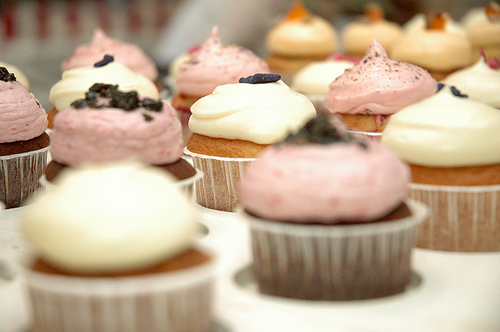By Anna Richardson
Sugar has been around for a long time. Sugar cane was first domesticated thousands of years ago and refinement techniques date back over 2000 years. Up until medieval times, sugar was quite expensive and used as a ‘fine spice’, until it began to be used in bulk. Since then, our sugar consumption has skyrocketed, and now Canadians eat a whopping 26 teaspoons a day on average, enough to fill a wheelbarrow every year.
Canada’s Food Guide recommends that added sugar not make up more than 25 per cent of your daily calories, but the WHO recommends that it only make up 10 per cent or less.
Sugar’s impact on health is largely controversial. Robert Lustig, an American endocrinologist, is known for his lecture on sugar being ‘evil’ and ‘toxic’. Many experts link sugar to obesity, diabetes, heart disease, even cancer.
Recently, documents containing information on the sugar industry have surfaced and likened it to ‘Big Tobacco’, with similar lobbying tactics and sponsoring scientific research. Reports claim it has been blocking conflicting media and dietary guidelines from becoming public.
But is sugar really that bad? David Katz, an MD and Huffpost writer, puts it well: “If we get the public totally mesmerized by one nutrient concern at a time, we’ve created a gaping loophole for a whole battalion of new, high-profit, low-nutrient, just-what-you’ve-been-asking-for foods. They are already on the assembly line”.
Sugar is also thought to be highly addictive; some say even as much as certain drugs. A Princeton study has found that when consumed, sugar activates the same areas of the brain that are active when taking addictive drugs. It can change your dopamine levels and work on your opioid receptors.
Food engineering has come a long way, and many companies are working at making their foods even more addictive. ‘Sugar withdrawal’ might even have a scientific basis soon.
When you eat a high-sugar food, it will raise your blood sugar significantly. After a few hours, your blood sugar will drop lower than its starting point, and you may feel a ‘sugar crash’. To avoid this, eat a mixed meal with protein, fat, and complex carbs. All carbohydrates eventually break down into simple sugars in your body, but at a much slower rate than your KitKat.
What about natural sugars?
Dairy products, fruits, and vegetables all contain natural sugars. The benefits vastly outweigh the moderate sugar content, and sugar absorption is slowed by the fibre, fat and protein within them.
But what about things like honey, agave nectar, and maple syrup? They’re natural, but they are high in sugar. They are less processed than the white stuff, and aren’t stripped of their nutrients. They may taste delicious, but they aren’t lower in sugar than your bag of white or brown. However, agave nectar and similar products are thought to break down more slowly and not spike your blood sugar levels as much as processed sugar.
So, some experts say it’s evil, some say it’s no worse than any other food. In my humble opinion: I’m certainly wary of it. I doubt I’ll be swearing off it any time soon, but I’m going to try to be aware of my intake and limit it when I can.
Thinking of cutting back? Cool. You won’t even miss it!
- Ditch the soda and replace it with pretty much anything else. Tea, water, coffee, the occasional fruit juice. You’ll probably never look back!
- Read your labels. Sugar is hiding everywhere. Salad dressing, pasta sauce, breads, BBQ sauce, ketchup, even soup. Check it.
- Swap out the occasional chocolate bar or bag of jujubes with filling foods like fruit and nuts.
- Choose your cereals and granola bars wisely. Some of those bad boys can give you as much sugar as chocolates and cookies.
- Feeling drained and want an afternoon pick-me-up? Have a little something sweet and then grab a healthy snack to keep you going till dinner.
- Make it special! No one wants you to stop serving cake at your birthday. The nutrition mantra: Balance.
- Sugar has many names. Glucose, fructose, glucose-fructose, sucrose, high fructose corn syrup, dextrose, lactose, maltose, maltodextrin, barley malt, cane sugar, invert sugar, fruit juice concentrate, beet sugar, corn syrup solids and countless others. Check those ingredient lists!












Leave a Reply